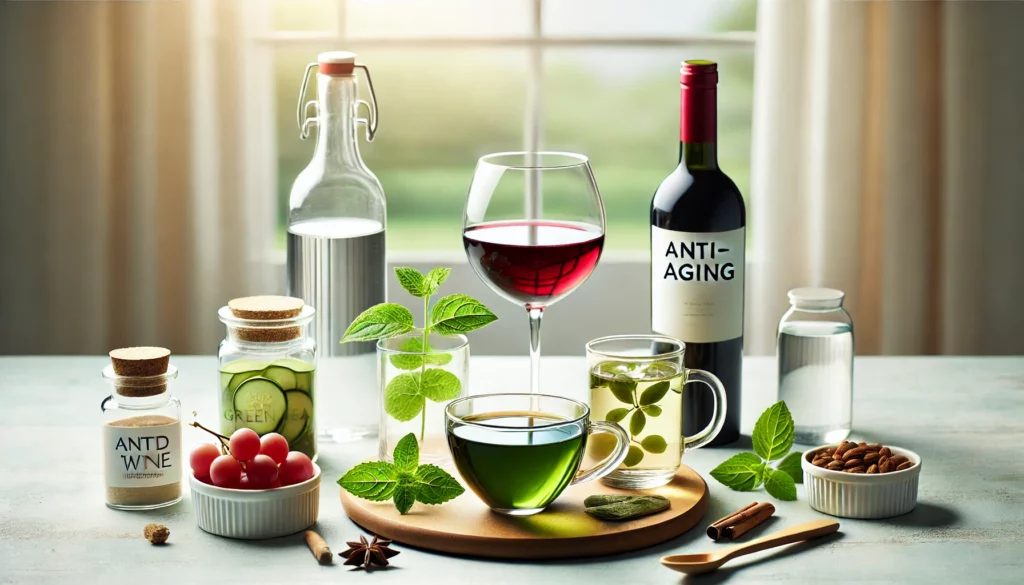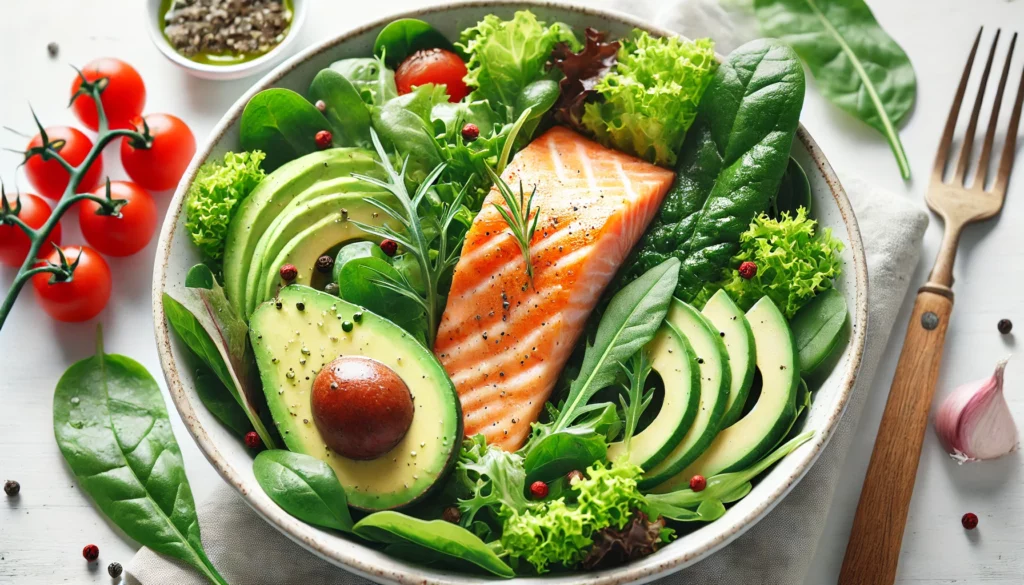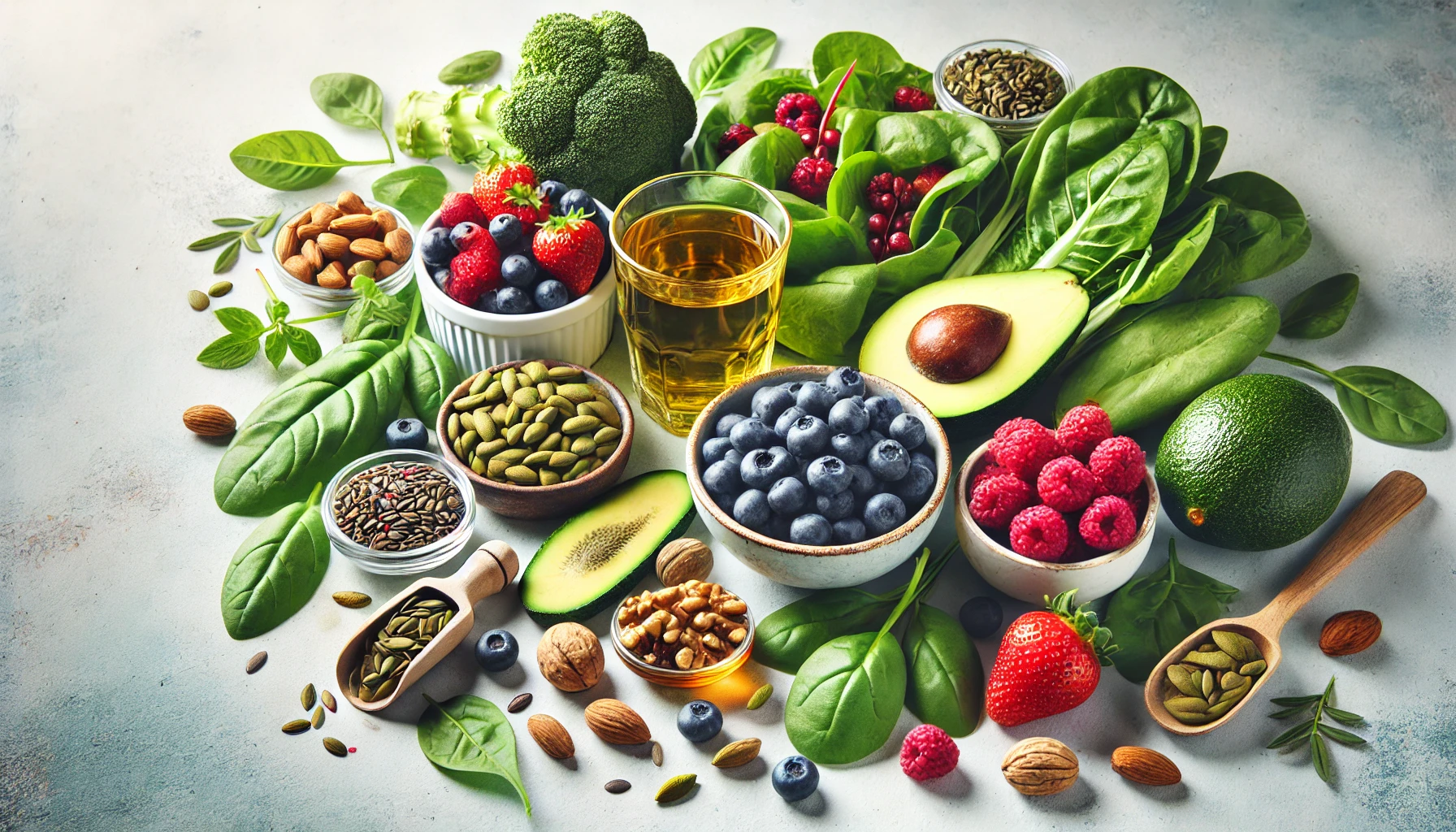Introduction
Aging is an inevitable part of life, but did you know that what you eat can significantly impact how gracefully you age? Incorporating the right foods into your diet can help maintain youthful skin, boost energy levels, and support overall health. Anti-aging foods are rich in antioxidants, vitamins, and minerals that combat the signs of aging from the inside out. By making mindful choices about your diet, you can look and feel younger for longer. This article will explore some of the best anti-aging foods that you can easily add to your daily routine to keep you looking and feeling your best.
Understanding Aging and Its Effects
Aging is a complex process influenced by genetic, environmental, and lifestyle factors. At the cellular level, aging involves the accumulation of damage to DNA, proteins, and lipids, which leads to a decline in cellular function and increased vulnerability to diseases (Eat This Not That) (EatingWell). One of the key factors in aging is oxidative stress, caused by free radicals. These unstable molecules damage cells and contribute to the aging process. Antioxidants, found in various foods, neutralize free radicals and can reduce oxidative stress, slowing the aging process (Eat This Not That).
Top Anti-Aging Foods
Fruits
Berries: Berries, such as blueberries, strawberries, and raspberries, are packed with antioxidants like vitamin C and anthocyanins, which protect the skin from damage caused by free radicals and UV radiation (Eat This Not That). These antioxidants also promote collagen production, maintaining skin elasticity and firmness (EatingWell).
Avocado: Rich in healthy fats, particularly monounsaturated fats, avocados help maintain the skin’s lipid barrier, preventing dryness and wrinkles. They are also high in vitamin E, which protects the skin from oxidative damage (Eat This Not That).
Pomegranate: This fruit is rich in punicalagins and anthocyanins, powerful antioxidants that protect the skin and improve elasticity. Pomegranate also has anti-inflammatory properties, which can help reduce the appearance of fine lines and wrinkles (EatingWell).
Vegetables
Leafy Greens: Spinach, kale, and other leafy greens are high in vitamins A, C, E, and K, which are essential for skin health. Vitamin A, in particular, promotes cell turnover and repair, keeping the skin looking fresh and youthful (Eat This Not That).
Cruciferous Vegetables: Broccoli, cauliflower, and Brussels sprouts are rich in sulforaphane, an antioxidant that helps detoxify the body and reduce inflammation. These vegetables also provide a good source of vitamins C and K, which support skin health and elasticity (Eat This Not That).
Sweet Potatoes: High in beta-carotene, sweet potatoes convert to vitamin A in the body, promoting skin cell turnover and a healthy complexion. They also contain vitamins C and E, which help protect the skin from damage and promote collagen production (EatingWell).
Nuts and Seeds
Almonds: These nuts are a great source of vitamin E, which helps protect the skin from oxidative damage. They also contain healthy fats that keep the skin moisturized and supple (Eat This Not That).
Walnuts: Walnuts are rich in omega-3 fatty acids, which reduce inflammation and improve skin barrier function. They also contain polyphenols, which can help fight oxidative stress and skin aging (EatingWell).
Chia Seeds: Packed with antioxidants, omega-3 fatty acids, and fiber, chia seeds help maintain skin hydration and reduce inflammation. They also support overall health, which is crucial for healthy aging (Eat This Not That).
Protein Sources
Fatty Fish: Salmon, mackerel, and sardines are excellent sources of omega-3 fatty acids, which help reduce inflammation and keep the skin hydrated. They also contain astaxanthin, a powerful antioxidant that can improve skin elasticity and reduce signs of aging (EatingWell).
Legumes: Beans, lentils, and chickpeas are rich in protein, fiber, and antioxidants. They help support muscle health and provide essential nutrients for skin repair and maintenance (Eat This Not That).
Eggs: Eggs are a complete protein source, containing all essential amino acids. They also provide biotin, which supports skin, hair, and nail health (Eat This Not That).
Beverages
Green Tea: Green tea contains polyphenols, particularly epigallocatechin gallate (EGCG), which have powerful antioxidant and anti-inflammatory properties. These compounds help protect the skin from UV damage and improve skin elasticity (Eat This Not That) (EatingWell).

Red Wine (in moderation): Red wine contains resveratrol, an antioxidant that can help protect the skin from damage and improve overall health. Moderate consumption has been linked to better heart health and longevity (Eat This Not That).
Water: Staying hydrated is crucial for maintaining healthy skin and overall health. Water helps flush out toxins and keeps the skin plump and hydrated (Eat This Not That).
How to Incorporate Anti-Aging Foods into Your Diet
Adding anti-aging foods to your diet is easier than you might think. Start your day with a smoothie made from berries, spinach, and chia seeds. For lunch, enjoy a salad with leafy greens, avocado, and grilled salmon. Snack on a handful of almonds or walnuts, and for dinner, include a side of sweet potatoes with your meal. Don’t forget to stay hydrated with plenty of water and enjoy a cup of green tea or a glass of red wine in moderation.

Additional Tips for Anti-Aging
While diet plays a crucial role in healthy aging, it’s also important to maintain other healthy habits. Regular exercise helps keep your muscles strong and improves circulation, which benefits your skin. Getting enough sleep is essential for cell repair and regeneration. Managing stress through mindfulness practices, such as meditation or yoga, can reduce the negative impact of stress on your skin and overall health. Lastly, avoid processed foods and sugars, which can accelerate the aging process and contribute to inflammation.
Conclusion
Incorporating anti-aging foods into your diet can have a profound impact on your appearance and overall health. By choosing nutrient-rich foods like berries, leafy greens, fatty fish, and nuts, you can combat the signs of aging and promote a youthful, vibrant look. Remember, it’s not just about what you eat, but also about maintaining a healthy lifestyle with regular exercise, adequate sleep, and stress management. Start making small changes today and enjoy the long-term benefits of looking and feeling young.
FAQs About Anti-Aging Foods
1. How do antioxidants help in anti-aging?
Antioxidants neutralize free radicals, which are unstable molecules that can cause oxidative stress and damage cells, leading to premature aging. By reducing oxidative stress, antioxidants help maintain cellular health and prevent the signs of aging, such as wrinkles and fine lines (Eat This Not That) (EatingWell).
2. Can eating certain foods really improve my skin’s appearance?
Yes, consuming foods rich in vitamins, minerals, and antioxidants can significantly improve your skin’s health and appearance. For instance, vitamin C in berries and leafy greens promotes collagen production, while omega-3 fatty acids in fatty fish help keep the skin hydrated and reduce inflammation (Eat This Not That) (EatingWell).
3. Is it necessary to take supplements for anti-aging, or can I get all the nutrients from food?
While it’s possible to get all the essential nutrients from a balanced diet rich in anti-aging foods, some people might benefit from supplements, especially if they have dietary restrictions or specific health conditions. However, it’s always best to consult with a healthcare provider before starting any supplement regimen (Eat This Not That) (EatingWell).
4. How much of these anti-aging foods should I incorporate into my diet?
There’s no one-size-fits-all answer but aiming for a diverse and balanced diet that includes a variety of fruits, vegetables, nuts, seeds, and lean proteins is a good start. For example, you could have berries with breakfast, a salad with leafy greens and avocado for lunch, and fatty fish with vegetables for dinner. Consistency is key to seeing long-term benefits (Eat This Not That) (EatingWell).
